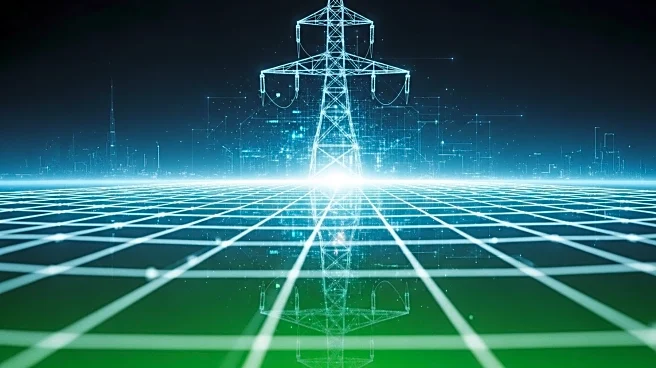What is the story about?
What's Happening?
The rapid expansion of data centers driven by artificial intelligence is creating significant challenges for utilities and policymakers in the United States. Industry projections indicate that AI demand could increase data centers' electricity usage from 4.4% to as much as 12% of U.S. electricity consumption by 2028. This growth is putting pressure on grid infrastructure, with states like Virginia and Georgia experiencing substantial impacts. Virginia's Joint Legislative Audit & Review Commission has reported nearly $1 billion annually in sales tax exemptions for data centers, while Georgia's utility filings show that 80% of projected load growth over the next decade will be attributed to data centers. These facilities, essential to the digital economy, consume vast amounts of electricity and water, affecting local rates and infrastructure.
Why It's Important?
The expansion of AI-driven data centers poses a risk of increased costs for ordinary customers if not managed properly. Utilities and regulators must strike a balance between supporting technological growth and maintaining grid reliability without overburdening households. The potential increase in electricity demand could lead to higher bills and infrastructure strain, impacting competitiveness in sectors reliant on cloud infrastructure, such as banking and logistics. Strategic planning is crucial to ensure that the costs associated with new infrastructure are shared fairly among beneficiaries, including tech companies driving demand.
What's Next?
Utilities and regulators are encouraged to diversify energy supply, balancing renewables, natural gas, and long-duration storage to ensure reliable power delivery. Aligning costs with beneficiaries and promoting efficiency and reuse are key strategies to mitigate the impact of AI's electricity demand. National coordination is necessary to prevent piecemeal agreements with tech giants and ensure sustainable growth. The focus should be on building systems that deliver firm, affordable power while linking incentives to performance outcomes.
Beyond the Headlines
The ethical and economic implications of AI's electricity demand extend beyond local rate cases. The U.S. risks losing competitiveness if electricity supply becomes a constraint, highlighting the need for national coordination. The challenge is to support technological growth without compromising grid reliability or burdening customers, requiring a holistic approach to planning and investment.
















